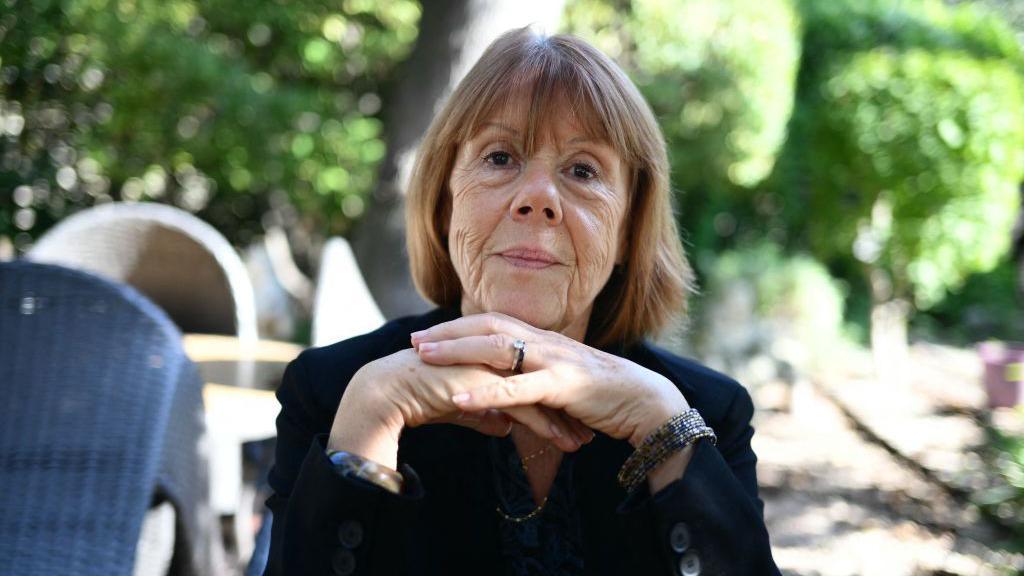Gisèle Pelicot condemns rape accused and says French society must change
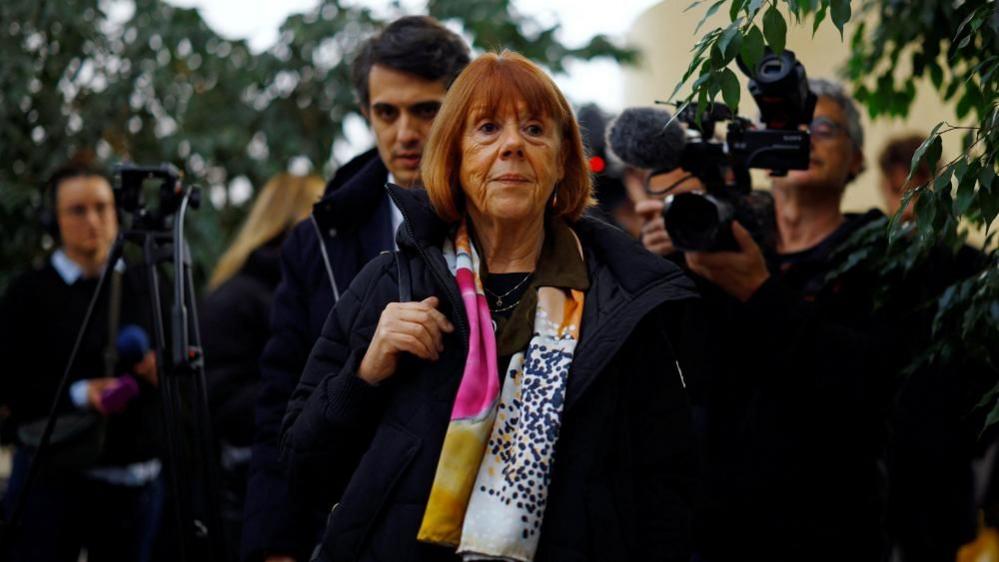
Gisèle Pelicot faced combative questions from defence lawyers on her final day of evidence
- Published
Gisèle Pelicot has denounced the mass rape case of 51 men as a "trial of cowardice", and said it is high time that France's "macho, patriarchal society" which "trivialises rape" changes.
Her ex-husband, Dominique Pelicot, has admitted recruiting dozens of men online to rape her while she was drugged and unconscious over the course of almost a decade at their home in Mazan.
During a dramatic day in court there was uproar when a defence lawyer accused her of still being under her ex-husband's control and of being unable to condemn him fully.
Ms Pelicot has attended the mass rape trial from its start in September. She has waived her right to anonymity so the entire trial can be heard in court in Avignon in the full glare of publicity.
The case has not just shocked France, it has attracted interest from around the world. It has highlighted the issue of drug-induced sexual assault and raised questions about whether consent should become part of the French definition of rape.
Warning: Some of the details in this report are graphic from the start
Tuesday's session was the last chance that lawyers for the men on trial for rape might have to convince the judges that her ex-husband Dominique Pelicot had somehow tricked them into raping her while she was unconscious.
About 15 defendants sat in the defendants' box while Dominique Pelicot sat in another box, resting his chin on his hand. A handful of the 50 admit raping Gisèle Pelicot, but the majority do not.
Dominique Pelicot was asked whether he accepted that he had manipulated the other defendants into raping his wife or if he had drugged them, he said firmly: "Absolutely not."
He suggested they had used that defence "to save themselves".
Gisèle Pelicot's lawyer also asked him what he had to say to his family, especially his daughter Caroline.
Partially naked images of Caroline were found on Dominique Pelicot's laptop, and when asked about the file he had called "my naked daughter", he addressed her across the room: "I have watched her fall apart... Caroline, I never touched you."
She shouted across the court: "You are lying; I am sick of your lies, you're alone in your lie, you will die lying."
There was complete silence as they looked at each other and Dominique Pelicot then held his head in his hands.
The rest of the family, their faces filled with anguish, stared at him, while Gisèle Pelicot herself did not react.
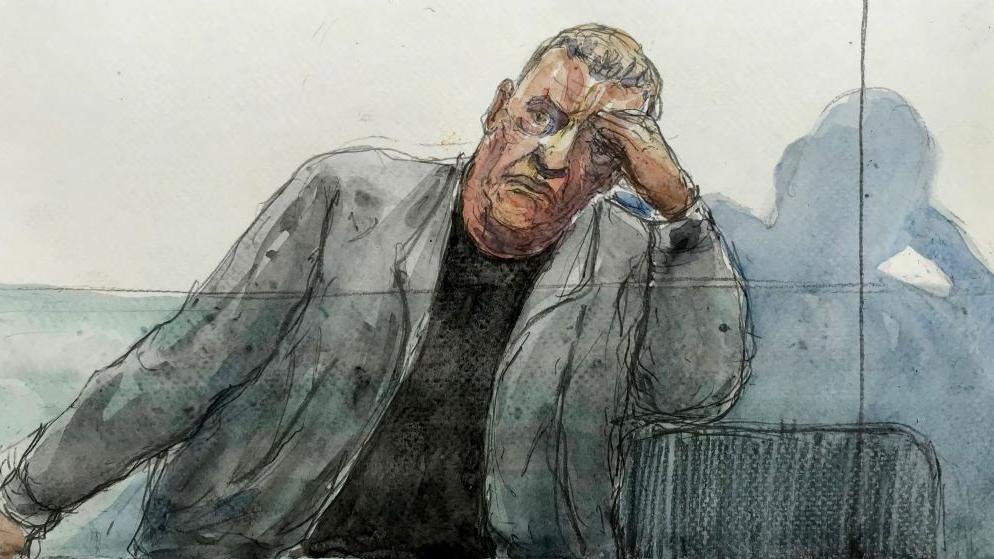
Dominique Pelicot admits drugging his wife and recruiting dozens of strangers online to rape her while she was drugged
Not long before Ms Pelicot took the stand, the last of the 50 defendants, Philippe L, said he had been "surprised" by the situation when Dominique Pelicot had welcomed him into his home and insisted that he penetrate Gisèle Pelicot.
He also denies rape, arguing he put his conscience aside and "was thinking with my penis instead of my brain".
After Philippe L left the dock, Ms Pelicot told the court that by giving up her right to a trial behind closed doors she "knew what I was signing up for", although she conceded "today I can feel the tiredness".
Asked whether she thought there was a difference between those who had admitted to raping her and those who had not, Ms Pelicot said that "all came to rape me... all committed a crime".
But she emphasised that when the accused had admitted to rape in the dock "I looked them in the eye".
"I've seen individuals who deny rape parade before the court," she said. "I want to tell these men: at which moment when you enter that bedroom did Ms Pelicot give you consent?"
"I've heard 'I was manipulated', I've heard 'I drank a glass of water, I was drugged'. But at what point did they not realise?"
Ms Pelicot was also asked why she continued to use her ex-husband's name when her own children had been using other names.
The room was hushed as she responded calmly that when she had first gone into the court in Avignon her children were ashamed of the name, but that her grandchildren were still called Pelicot.
"Today I want them to be proud of their grandmother," she declared.
"My name is known across the world now. They shouldn't be ashamed of carrying that name. Today we will remember Gisèle Pelicot."
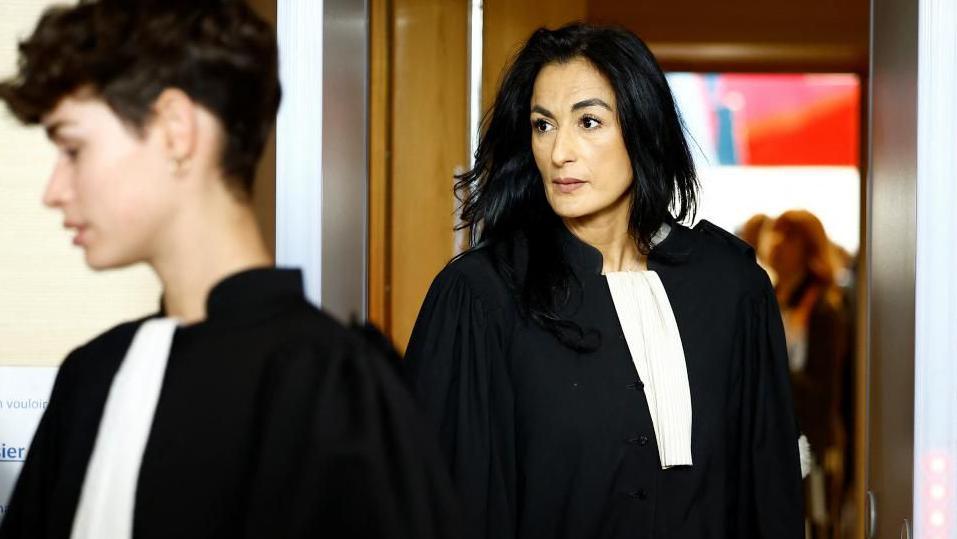
Defence lawyer Nadia El-Bouroumi clashed in court with Gisèle Pelicot's legal team
The atmosphere in the courtroom became heated when Ms Pelicot was questioned by defence lawyer Nadia El-Bouroumi, who suggested she had used "harsh words" towards the other defendants, but not her husband.
"Looking at you - and I'm sorry to say this - I wondered whether we'd ever see you cry," El-Bouroumi asked at one point.
The lawyer's combative and sometimes aggressive tone elicited gasps from the public and the media inside the courtroom, and several people shook their heads in disbelief.
Ms Pelicot rejected suggestions that looking back she might have "seen the signs" that something might not have been right on the mornings after being drugged: "I would wake up with my usual pyjamas on, so no."
She spoke of losing 10 years of her life through medical worries caused by the drugs her former husband had given her without her knowledge.
"I thought I'd either die or end up in a mental hospital," she reflected. "I am 72 now and I don't know how much time I have left."
Defence lawyers also asked her about the images on Dominique Pelicot's laptop of their daughter Caroline.
The Pelicots' children then stormed out of the courtroom and did not come back for some time, while Gisèle Pelicot said later that it "isn't a family trial".
When a defence lawyer put it to Ms Pelicot that she was still under her ex-husband's control and could not bring herself to condemn him fully, she stood silently in court as the lawyers from both sides shouted at each other.
The presiding judge had to intervene to bring the argument to an end.
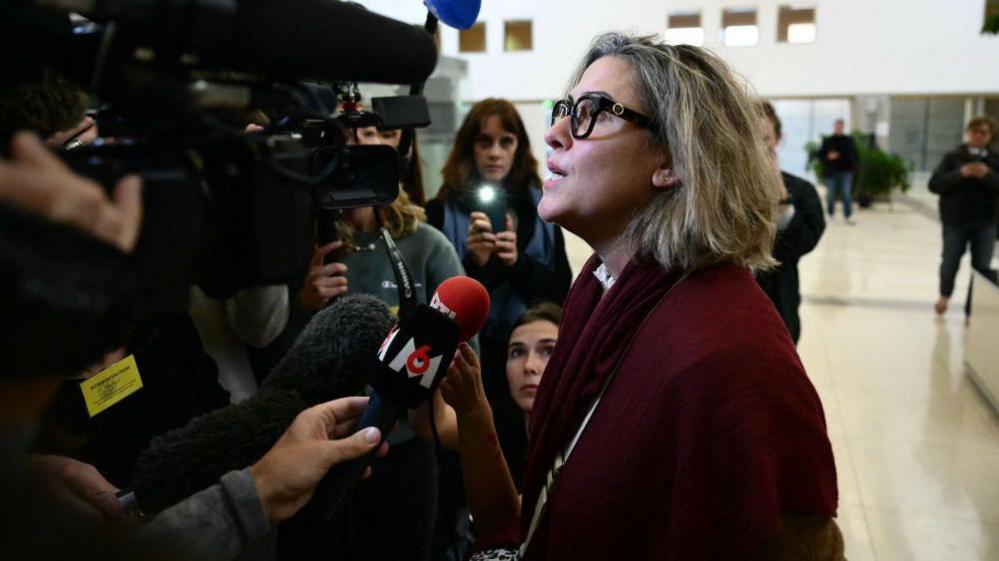
Caroline Darian stormed out of the court with her two brothers when defence lawyers discussed partially naked pictures of her found on her father's computer
Later in the day the court heard a statement from Dominique Pelicot given to police in November 2020, two months after he was caught filming under women's skirts by a supermarket security guard.
That eventually led police to find thousands of videos that he had filmed of men having sex with his wife while she was unconscious. She had no idea of what had gone on and realised he had been drugging her from 2011 to 2020.
The trial is due to wind up next month with a verdict in the second half of December.
Related topics
- Published17 November 2024
